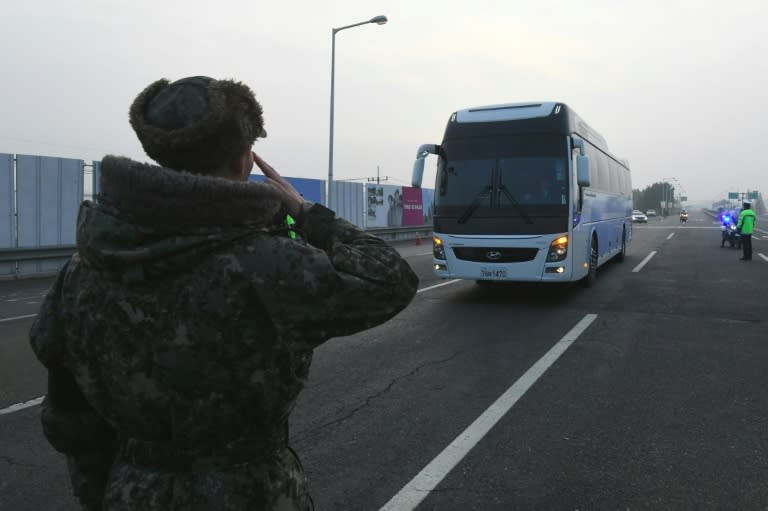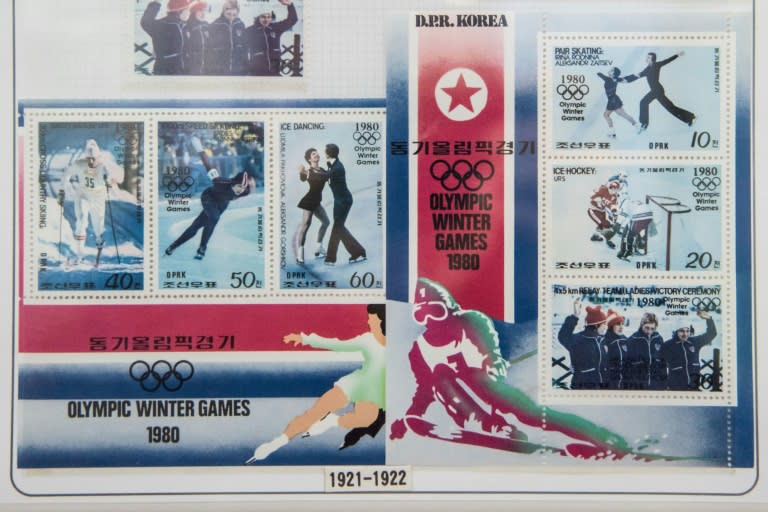Two Koreas in talks on Winter Olympics athletes
North Korea has offered to send more than 200 cheerleaders to the Winter Olympics in the South and attend the Paralympics, Seoul said as the two Koreas met Wednesday to discuss athlete numbers in the latest in a flurry of cross-border talks. Nuclear-armed Pyongyang agreed last week to send athletes, high-level officials, performers and others to next month's Pyeongchang Games, taking place just 80 kilometres (50 miles) south of the Demilitarized Zone (DMZ) that divides the peninsula. Seoul has long sought to proclaim the event a "peace Olympics" in the face of tensions over the North's weapons programmes -- which have seen it subjected to multiple UN Security Council sanctions -- and the discussions represent a marked improvement. "Inter-Korean relations have been strained for almost 10 years," the North's chief delegate Jon Jong-Su said as the meeting started on the southern side of the border truce village of Panmunjom. "We hope that ties can open," he added. Three officials from each side took part and the results will be discussed by both Koreas with the International Olympic Committee (IOC) in Lausanne, Switzerland, on Saturday. The IOC must approve extra Olympic slots for the North's athletes after they failed to qualify or missed deadlines to register. An official at Seoul's unification ministry said the North offered to send 230 cheerleaders to the Olympics, and made clear it also intended to take part in the Paralympics in March. North Korea also proposed that its delegation travel by land through Kaesong, which lies on the main road from Pyongyang to Seoul. Overland travel may be the only option for the North as the neighbours have no direct flights between them and Seoul's unilateral sanctions against the regime ban any ship from its ports that has sailed to the North within the past 12 months. South Korea will also need to find ways to accomodate the North Korean delegation without violating UN Security Council sanctions which block cash transfers to Pyongyang. Any blacklisted officials in the North's high-level delegation could be another potential stumbling block. In another meeting on Monday the two reached an agreement over a trip by a 140-member North Korean orchestra to the South to hold concerts in the capital and in Gangneung, one of the Games venues. - Frosty reception - The series of talks comes after the North's leader Kim Jong-Un abruptly announced his willingness to take part in Pyeongchang Games, which run from February 9 to 25, in his New Year speech. The move was seen as a bid to ease searing tensions on the peninsula and was rapidly welcomed by Seoul. Last year the nuclear-armed North tested missiles capable of reaching its "enemy" the US and Kim traded threats of war with US President Donald Trump. Following Kim's offer, Seoul last week suggested a unified team in women's ice hockey and a joint appearance at the opening and closing ceremonies. But the proposal has met a frosty reception in South Korea, where critics accused the government of robbing some of its own ice hockey players of the opportunity to compete at the Olympics for the sake of political purposes. Tens of thousands have signed dozens of online petitions on the presidency's website urging leader Moon Jae-In to scrap the plan. "Our players trained so hard for years to compete at the Olympics... and a joint team with the North would render such efforts a waste for many of them," said one of the petitions. Seoul should not force players to "make a sacrifice for the sake of the country", JoongAng Ilbo, a major Seoul daily, said in an editorial on Wednesday, after the team's coach Sarah Murray said her players would suffer as a result of any such move. "I am kind of shocked this happened so close to the Olympics," she said, adding team chemistry would suffer. South Korea only qualified for the ice hockey tournament as hosts, rather than on merit, and are not seen as medal contenders. Earlier this week the Yonhap news agency quoted an anonymous sports ministry official as saying there were no plans for unified teams in any other disciplines.




